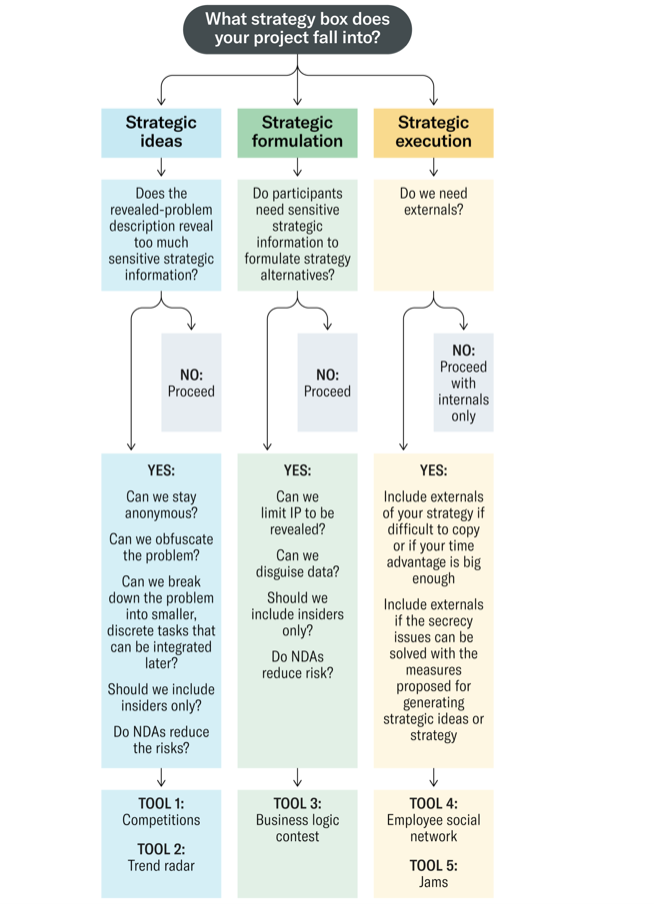- Open innovation methods can also be applied at a more general and strategic level — and this article presents a framework for doing just that.
- A simple insight sits at its heart: strategy is developed in three distinct phases, each of them requiring a different solution to get the balance between openness and secrecy right.
- Depending on whether a company wants to
> open up in order to determine the direction it wants to take (idea generation phase) OR
> work out the exact details of their strategy (formulation phase) OR
> mobilize staff around its strategy (execution phase)
strategy making will involve different numbers and types of people, and requires different amounts and typeS of data.
- The framework to help managers determine for each of the three phases of strategy
(1) whether participants should come exclusively from inside the company or should include externals
AND
(2) whether they should recruit large groups of randomly selected or self-selecting people or target small numbers of hand-picked individuals. - In general, companies benefit most from including a large crowd of very diverse external participants in the first stages of strategy making
BECAUSE
> this offers new thinking
AND
> legitimizes a new idea, thereby helping executives to unite around a particular direction.
- Participants during idea generation don’t need very much company-specific information to get the ideas flowing, making secrecy easiest to maintain during this phase.
- The U.S Navy set up a multiplayer online game to develop ideas for a new aviation strategy.
>Six hundred participants — including industry partners, academics, and others not part of the Navy — posted and voted on over 5,000 ideas.
The Navy relied on four crucial elements to exert considerable control.
> First, they previously experimented with openness in a limited, low-risk way, e.g., in a game asking how to respond to the Somali piracy issue. This helped them to understand how open strategy worked and to build a robust, leak-proof system.
> Second, they could rely on a culture of confidentiality to enforce secrecy.
> Third, they sought legal counsel to ensure that no issues will emerge on this front.
> And fourth, they were aware that in order to generate new ideas it was not necessary to share what they had already done and what they are planning to do in future.



